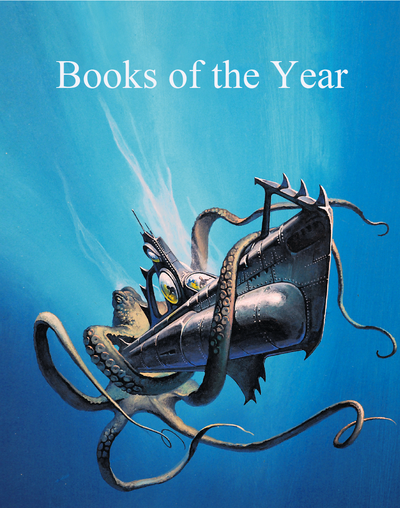Books of the year, from love to hate – and from Zoffany to Acceptance
By MICHAEL CAINES
This week's issue of the TLS devotes several pages to the generally positive exercise that is "Books of the Year" (or "International Books of the Year", depending on who you ask; the adjective emphasizes an notable aspect of our contributors' wide reading). I say "generally positive" because you do sometimes learn a bit about what writers, scholars, scientists, artists et al dislike as much as what they like.
For example . . .
Katherine Duncan-Jones is happy to have read Merivel, Rose Tremain's sequel to Restoration, and learned to love the historical novel, because the "garrulous and slow-paced" works of Sir Walter Scott had previously bored her "almost to screaming". (In terms of the longer, meandering course of literary history, Scott seems to have long ago turned into a kind of oxbow lake – redundant, sadly for his true admirers, but vital to its development.)
Or there's Hilary Mantel, confessing that Edna O’Brien's memoir Country Girl exerted a "loathly grip" on her, despite being neither a great book "or even a good one".
Among the usual displays of taste and erudition, distaste makes itself known less directly, and we've put a selection from the selection online – from Mary Beard's plea for exhibition catalogues, inspired by the excellent accompaniment to this year's Zoffany exhibition at the RA, to Rowan Williams's last contribution in his time as Archbishop of Canterbury, on a powerful book that offers "nothing easily consoling . . . but rather a sense of stillness, acceptance and hope" – so you can see for yourself the range of what's been published (or, in some cases, what's only now been read) and make your own deductions, compare notes, violently disagree, etc.
It's also a flimsy excuse for me to publish this variation on our cover. Above is a mighty illustration by Gino D'Achille to Twenty Thousand Leagues Under the Sea, chosen on account of Peter Cogman's piece on Jules Verne's Voyages extraordinaires finally finding their way into the Pléiade, that seems to have shifted dimensions and become, in the process, an illustration of the critical process – a reader hitching a bookish ride? Or – a more "loathly" possibility, perhaps – is this a "Book of Year" taking possession of some unwilling literary submariner?
There is another general point to be made about these choices, and the Editor has already made it in his weekly introduction to the issue, confirming a couple of points about judging this year's Booker Prize along the way.
Peter Stothard's Blog
- Peter Stothard's profile
- 30 followers




